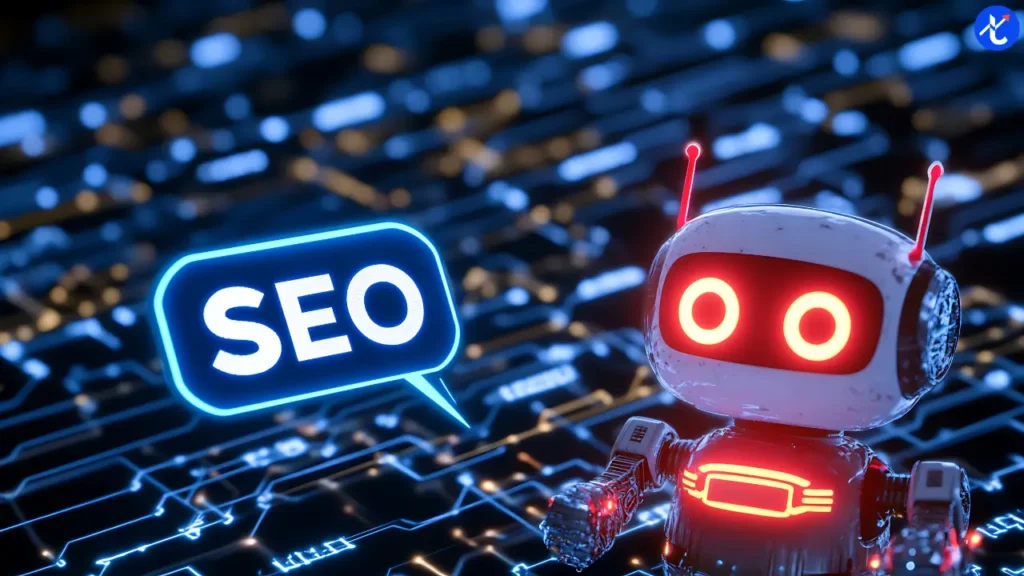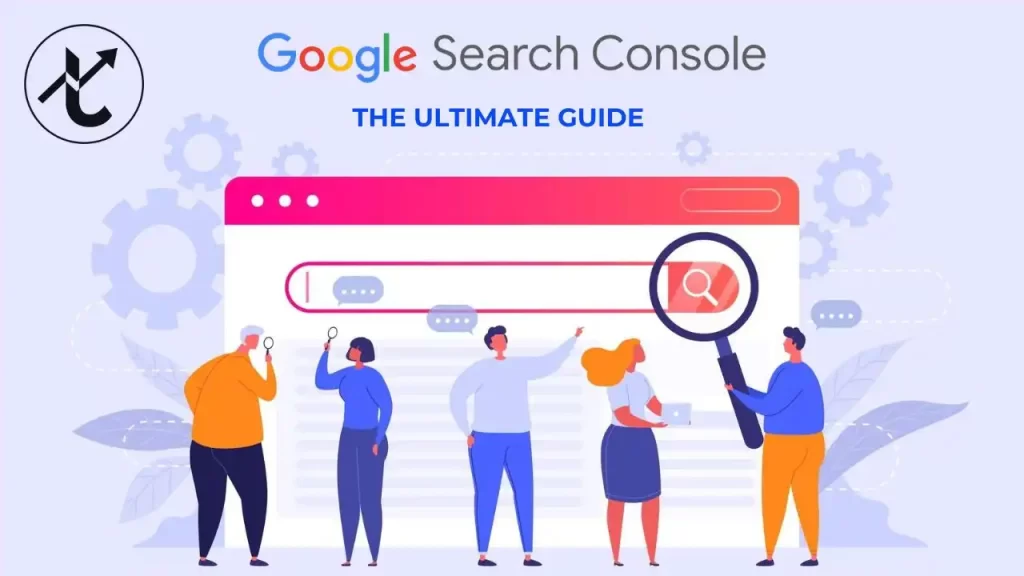The future of SEO with AI search engines is evolving rapidly as platforms like ChatGPT, Google’s AI-powered Search, and Bing with AI assistants take center stage. Ranking higher in AI-powered search engines now requires strategies that go beyond traditional SEO techniques.
Today, SEO professionals must understand the growing impact of generative AI SEO and leverage AI SEO tools specifically designed for the changing search landscape. Staying ahead means adapting content and optimization practices for AI-driven search engines, ensuring websites remain visible and competitive.
This blog explores the exciting future of SEO with AI search engines, focusing on ChatGPT and other AI platforms. It also shares smart SEO strategies for AI search platforms that help businesses and digital marketers stay ahead in 2025.
Ranking Higher in AI Powered Engines: What You Need to Know
Ranking higher in AI-powered engines is different from classic SEO ranking on Google or Bing alone. AI search engines don’t just list links—they generate answers, summaries, and conversational responses based on your content. To succeed, websites need to focus on:
- Answering user intent clearly and fully: AI values content that solves the user’s question comprehensively.
- Creating unique, expert, and trusted content: Generative AI SEO prioritizes authoritative sources.
- Using structured data and rich snippets: Helps AI understand your content better.
- Optimizing for voice and natural language: Conversational queries dominate AI search.
By aligning your SEO strategy with these principles, you improve your chances of being featured by AI search engines in zero-click results or AI answer boxes.
The Future of SEO with ChatGPT: A New Era of Search
ChatGPT and similar chatbot-style AI search engines are revolutionizing search behavior. Unlike traditional search, users interact with AI assistants that provide direct answers, explanations, and generate tasks such as shopping lists or coding help simultaneously. The future of SEO with ChatGPT, this means:
- You need to create content that AI can understand and summarize well.
- Focus on comprehensive topic coverage with clarity to get picked as a reliable source.
- Engage with conversational keywords and FAQs since AI matches user prompts closely.
- Look for AI partnerships or platforms (like Bing and OpenAI integrations) to optimize content visibility.
The future of SEO with ChatGPT encourages producing human-friendly and AI-friendly content together, blending expertise and user-focused presentation.
SEO Strategies for AI Search Platforms: Best Tips for 2025
To optimize for AI search engines, SEO strategies must evolve. Here are the top strategies:
- Answer Searcher Intent Deeply
Understand what users want, beyond keywords, and provide in-depth, clear solutions. - Leverage Generative AI SEO
Use AI content generators to draft, ideate, and optimize blogs but always apply human editing for quality and trustworthiness. - Optimize for Featured Snippets and Rich Results
Use schema markup and FAQs to help AI identify relevant answers. - Focus on E-E-A-T (Experience, Expertise, Authoritativeness, Trustworthiness)
Build content with trusted data, expert quotes, and robust sources. - Create Conversational and Voice-Search Optimized Content
Use natural language and anticipate follow-up questions that AI might process. - Use AI SEO Tools for Data-Driven Improvements
Employ AI tools to analyze competitors, keywords, content gaps, and technical SEO automatically. - Prioritize Mobile and Page Speed
AI search engines factor in user experience, especially on mobile devices.
Top AI SEO Tools in 2025 for Smarter Optimization
AI SEO tools offer huge advantages across keyword research, content creation, link building, and technical audits. Some best AI SEO tools in 2025 include:
- Surfer SEO and Clearscope: For AI-powered content optimization that matches user intent.
- Jasper and Writesonic: Generative AI content creation tools to help draft blog posts and marketing copy.
- Ahrefs and SEMrush AI features: For keyword research, competitive analysis, and monitoring SEO health.
- BrightEdge: Uses AI to provide actionable SEO insights and forecast traffic.
- MarketMuse: Combines AI with content planning and gap analysis.
Using a combination of these AI SEO tools helps marketers scale SEO while maintaining quality and relevancy.
Generative AI SEO – The Game Changer
Generative AI SEO means using AI systems that create content, summaries, meta descriptions, and even video scripts automatically. This technology:
- Speeds up content production.
- Helps fill content gaps quickly.
- Can tailor specific messages for different audience segments.
- Assists in creating micro-content for voice search or social media.
However, generative AI SEO requires a human touch to avoid issues like lack of originality or errors. The best practice is blending AI output with expert review for authenticity and trust.
How to Adapt Your SEO for the AI Search Revolution
The AI search revolution calls for agile and forward-thinking SEO. To adapt:
- Continuously update content based on search trends AI detects.
- Invest in user experience enhancements, as AI favors sites with better engagement.
- Develop multi-format content (text, video, audio) since AI pulls answers from many formats.
- Engage in brand building and authoritative backlinks to boost trust signals AI values.
- Experiment with chatbots and AI-generated Q&A sections to increase relevance for AI assistants.
Companies that integrate AI SEO tools and strategies see faster ranking improvements, better content engagement, and more traffic. For example, e-commerce sites using AI-driven keyword research and chatbots improved conversions by 30%. Media companies restructured content with AI insights and captured AI answer box traffic effectively.
These success stories prove that the future of SEO with AI search engines is bright for those ready to innovate and experiment.
Conclusion: Embracing the Future of SEO with AI Search Engines
The future of SEO is inseparable from the rise of AI search engines like ChatGPT and AI-powered Google updates. Ranking higher in AI powered engines requires blending traditional SEO foundations with AI-centric strategies, adopting AI SEO tools widely, and leveraging generative AI SEO smartly.
SEO leaders in 2025 focus on creating authentic, comprehensive, and user-focused content while using AI to amplify reach and precision. The opportunity is vast, and the time to act is now.
FAQ Section
Q1: What is the future of SEO with AI search engines?
A: It involves adapting SEO strategies to AI-driven search experiences, emphasizing user intent, content quality, and AI-friendly formats.
Q2: How do I rank higher in AI powered engines?
A: Focus on answering questions clearly, using structured data, and optimizing for voice and conversational search.
Q3: What are the best SEO strategies for AI search platforms?
A: Prioritize E-E-A-T, use AI SEO tools for research and auditing, create interactive content, and optimize for featured snippets.
Q4: What AI SEO tools should I use in 2025?
A: Tools like Surfer SEO, Jasper, Clearscope, SEMrush, and MarketMuse are top choices for AI-enhanced optimization.
Q5: What is generative AI SEO?
A: It’s using AI to generate content, meta descriptions, and marketing messages quickly, which must be quality-checked by humans.




